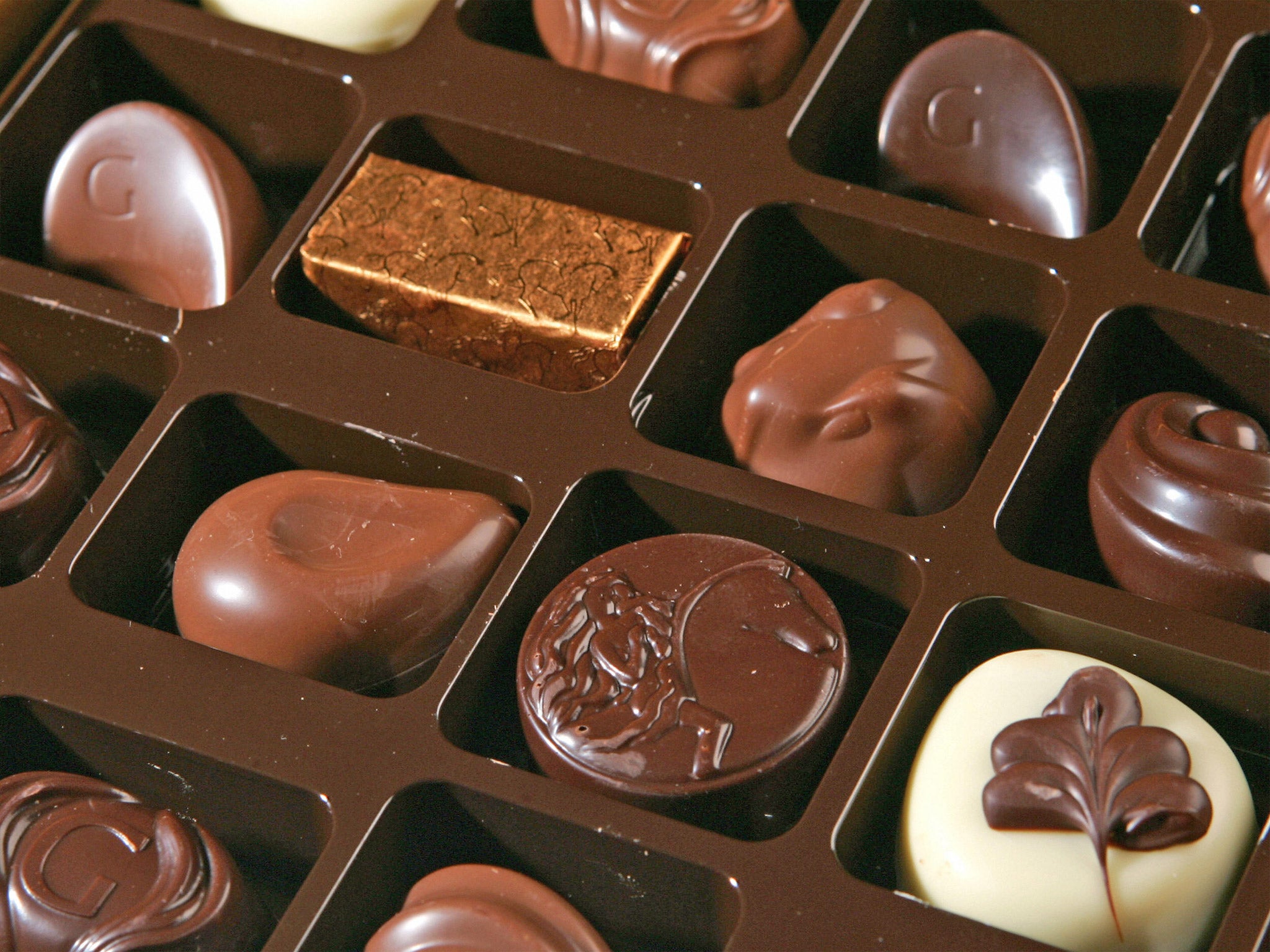Belgian chocolates and the trade spat souring EU-China relations
Latest trashing of the national delicacy comes as the EU pursues import tariffs on Chinese solar panels

Your support helps us to tell the story
From reproductive rights to climate change to Big Tech, The Independent is on the ground when the story is developing. Whether it's investigating the financials of Elon Musk's pro-Trump PAC or producing our latest documentary, 'The A Word', which shines a light on the American women fighting for reproductive rights, we know how important it is to parse out the facts from the messaging.
At such a critical moment in US history, we need reporters on the ground. Your donation allows us to keep sending journalists to speak to both sides of the story.
The Independent is trusted by Americans across the entire political spectrum. And unlike many other quality news outlets, we choose not to lock Americans out of our reporting and analysis with paywalls. We believe quality journalism should be available to everyone, paid for by those who can afford it.
Your support makes all the difference.Belgians are justly proud of their nation’s reputation as one of the world's finest chocolate producers. So when Chinese authorities announced this week that they had destroyed an unspecified amount of their chocolates because they contained toxic substances, alarm bells rang.
The Belgian media was swift to point out echoes of 2008, when Beijing declared a shipment of Belgian chocolate “not suitable for human consumption”. That snub was widely seen as tit-for-tat retaliation after the Brussels-based European Union banned Chinese soy-bean imports over high levels of toxic substances. Could it be coincidence that the latest trashing of the national delicacy comes as the EU pursues import tariffs on Chinese solar panels, local newspapers asked?
While the link between the discarded chocolates and the solar panels has yet to advance beyond conspiracy theory, it is not too far-fetched given the other signature European products including French wine and German cars already dragged into a trade spat souring EU-China relations and on the agenda at EU trade ministers' talks on Friday.
The alleged bout of recent score-settling began earlier this month, when the EU said it was going to impose tariffs of up to 47 per cent on solar panels made in China. The bloc accused China of “dumping” the panels in Europe – a trade term for selling a product for less than the production cost in an attempt to corner the market.
Within days, the Chinese announced that they were launching their own investigation into the sale of French wine in China, now the biggest export market for Bordeaux. The commerce ministry argued the agricultural subsidies handed out to French farmers put domestic producers at an unfair disadvantage.
Next to take a hit were German car makers. The Financial Times reported last week that Beijing was mulling a lodging a complaint over imports of luxury cars – another growth market in the booming Chinese economy.
“They are picking products for which China is an important market and that is good bargaining, to attack where it hurts, and it is very symbolic,” said André Sapir, a senior fellow specialising in trade at the Brussels-based Bruegel think tank.
In a separate case, the EU trade commissioner, Antonio Tajani, told Reuters yesterday that they were planning to lodge a complaint with the World Trade Organisation over duties China introduced in September 2011 on steel tubes produced in Europe.
Beijing's decision came just weeks after the EU imposed a similar duty on Chinese-made steel tubes, and the EU are challenging it on the grounds that the Chinese move was purely retaliatory and therefore against WTO policy. “There are rules, they must be respected,” Mr Tajani said.
Mr Sapir said that the EU seemed increasingly keen to flex its muscles on trade issues with China, but told The Independent that it was not clear if they were seeking simply assert their position in the world economy or redefine trade relations with the new economic super-power.
“Clearly they are standing up to China, but standing up to China to do what?” he asked. “What is not really clear to me is what is the next move.”
The trade spat will be on the agenda as EU trade ministers meet in Luxembourg tomorrow. Dominating the talks, however, will be plans for a EU-US free trade agreement, which is also currently causing headaches as France insists that any such deal must exempt its heavily-subsidised film industry.
Join our commenting forum
Join thought-provoking conversations, follow other Independent readers and see their replies
Comments